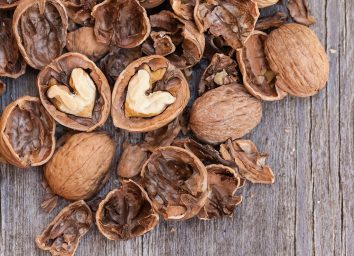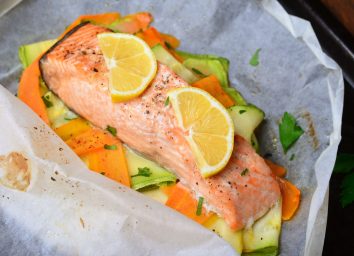8 Healthy Eating Habits For Your Heart, Say Dietitians

Heart disease is the leading cause of death in the U.S., accounting for approximately 655,000 stateside deaths each year, and 17.3 million deaths globally.
While genetic factors may contribute to your heart disease risk, your dietary habits can play a major role in your heart health—but fortunately, they’re among the most easily modifiable factors when it comes to your risk of cardiovascular problems.
If you want to improve your heart health, read on to discover the heart-healthy eating tips dietitians say you should adopt now. And for more easy ways to boost your wellbeing, check out The 7 Healthiest Foods to Eat Right Now.
Start your day with melon.
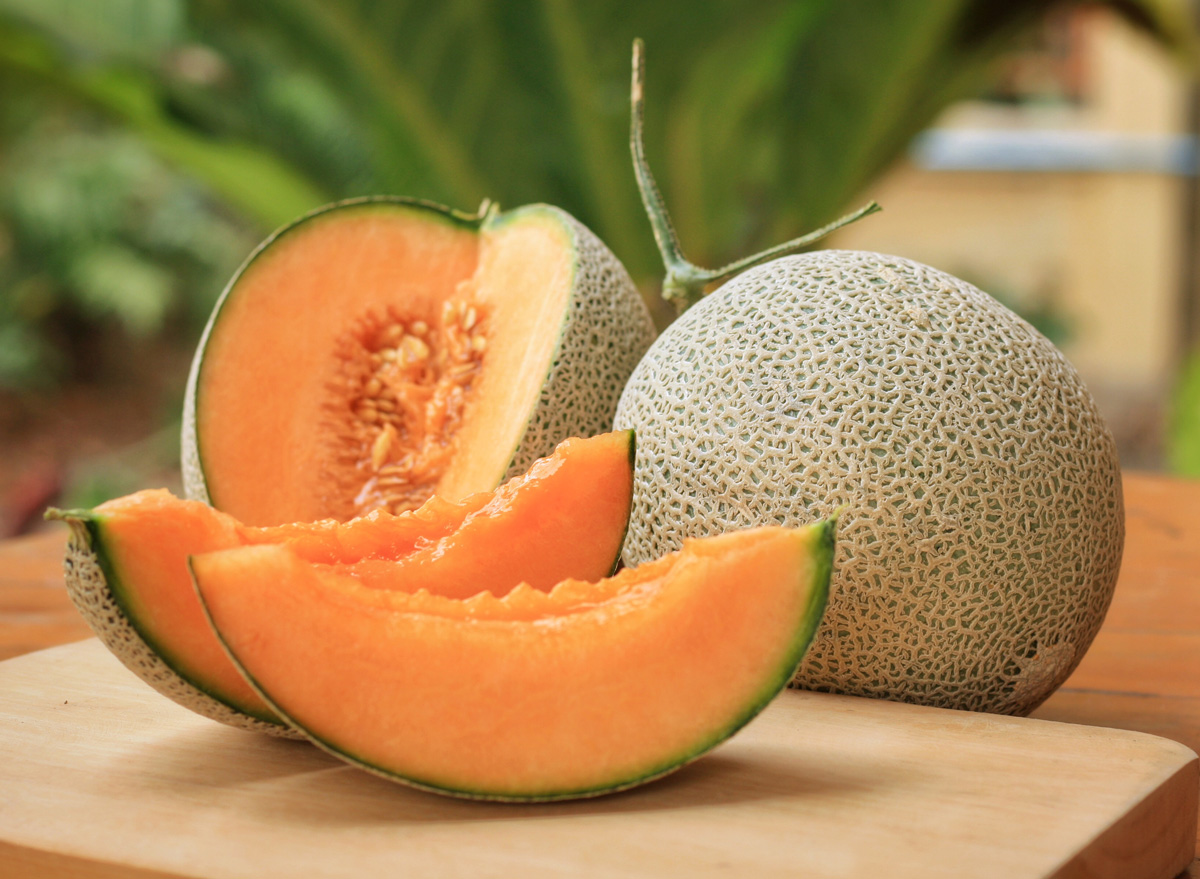
Even if you don’t feel like having a big morning meal, adding some cantaloupe to your diet could be a game-changer when it comes to your heart health.
“Potassium and antioxidant-rich, cantaloupe is a great heart-healthy fruit! It is a very low-calorie food that is also a nutrient-dense source of fiber, vitamin C, beta carotene, and vitamin A. This combination may help to lower blood pressure and improve vascular function in addition to helping with healthy weight management,” explains Susan Greeley, RD, a chef-instructor at the Institute of Culinary Education.
Enjoy some edamame.
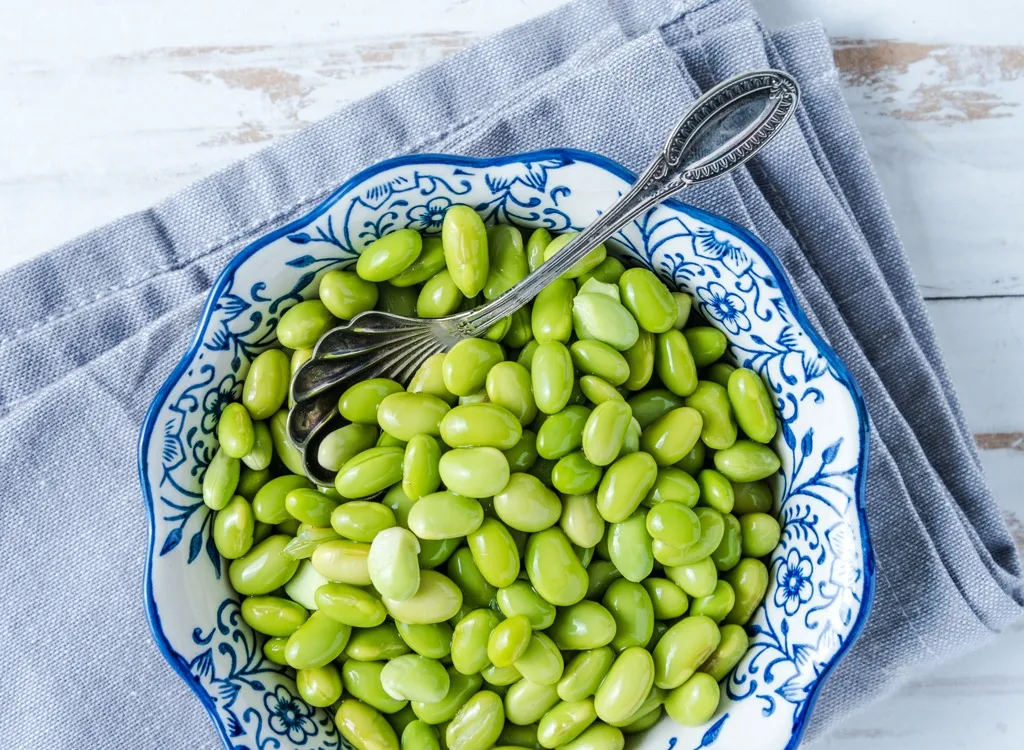
Looking for an easy way to improve your heart health? Whether you’re enjoying it as an appetizer or adding some to your favorite salad, edamame is a great way to improve your cardiovascular health.
“This star soybean food is high in fiber, protein, good fats (both poly- and mono-unsaturated), vitamin K, and isoflavones. The isoflavones have both an anti-inflammatory effect in the body and may be protective against heart disease and other chronic diseases,” explains Greeley, who notes that they may also help lower LDL cholesterol.
Just make sure you’re not loading that otherwise healthy snack up with salt, as a sodium-heavy diet can contribute to hypertension and cardiovascular issues.
Snack on strawberries.

Strawberry season is officially here, and that’s definitely a good thing when it comes to your heart health.
“Strawberries are an excellent source of the mineral potassium—and most Americans need more potassium in their diets to offset typical high-sodium diets,” explains Greeley.
“Potassium helps to lower blood pressure and is calming,” adds Greeley, who also notes that an antioxidant phytonutrient compound found in strawberries can lower LDL cholesterol and reduce inflammation that might otherwise contribute to atherosclerosis, which can lead to heart health issues.
Add some sweet potatoes to your diet.
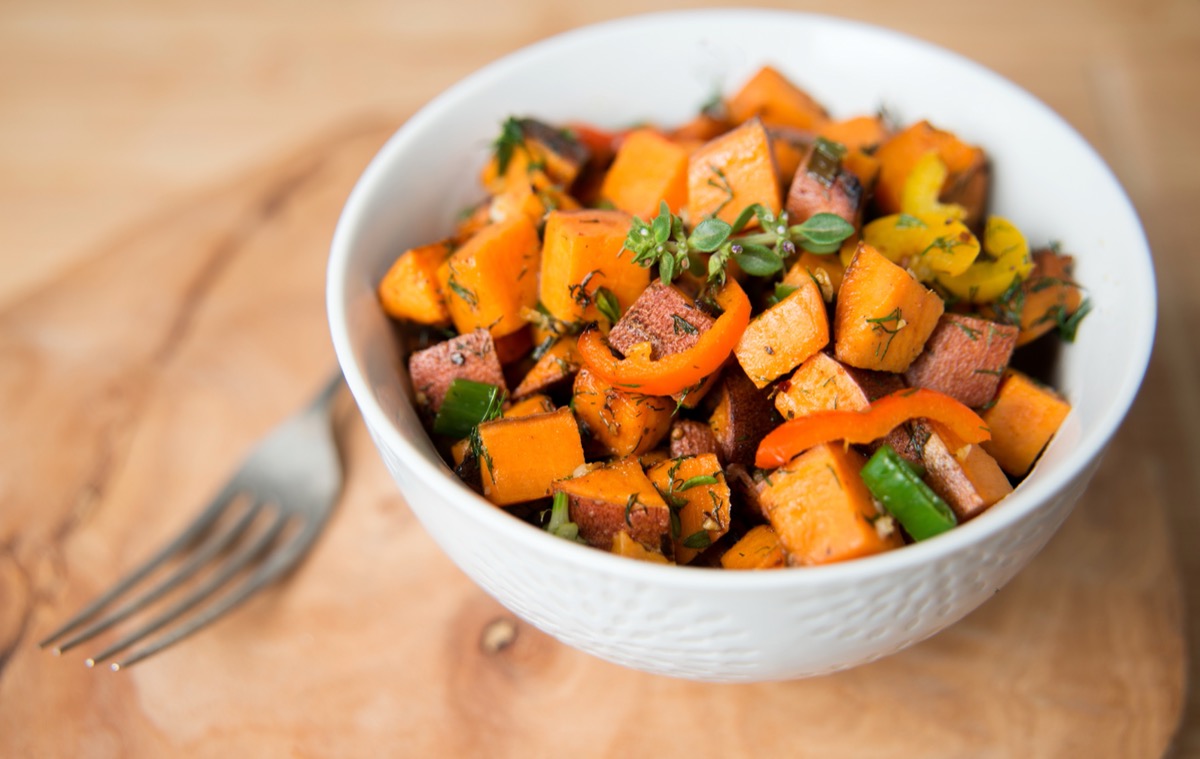
While French fries may not get your cardiologist’s seal of approval, you can still eat potatoes as part of a heart-healthy diet.
“Sweet potatoes are high in fiber and potassium, two important nutrients that can improve cardiovascular health,” explains registered dietitian Sarah Schlichter, MPH, RDN, of Bucket List Tummy.
“Potassium is great for heart health as it helps counteract sodium, and a low potassium-to-sodium intake is more strongly related to cardiovascular disease,” adds Schlichter, noting that sweet potatoes’ high polyphenol and antioxidant content can also help reduce inflammation that might otherwise contribute to cardiovascular issues.
For more ways to protect your heart, check out these 20 Foods That Can Help Lower Your Risk of Heart Disease.
Increase your intake of whole grains.
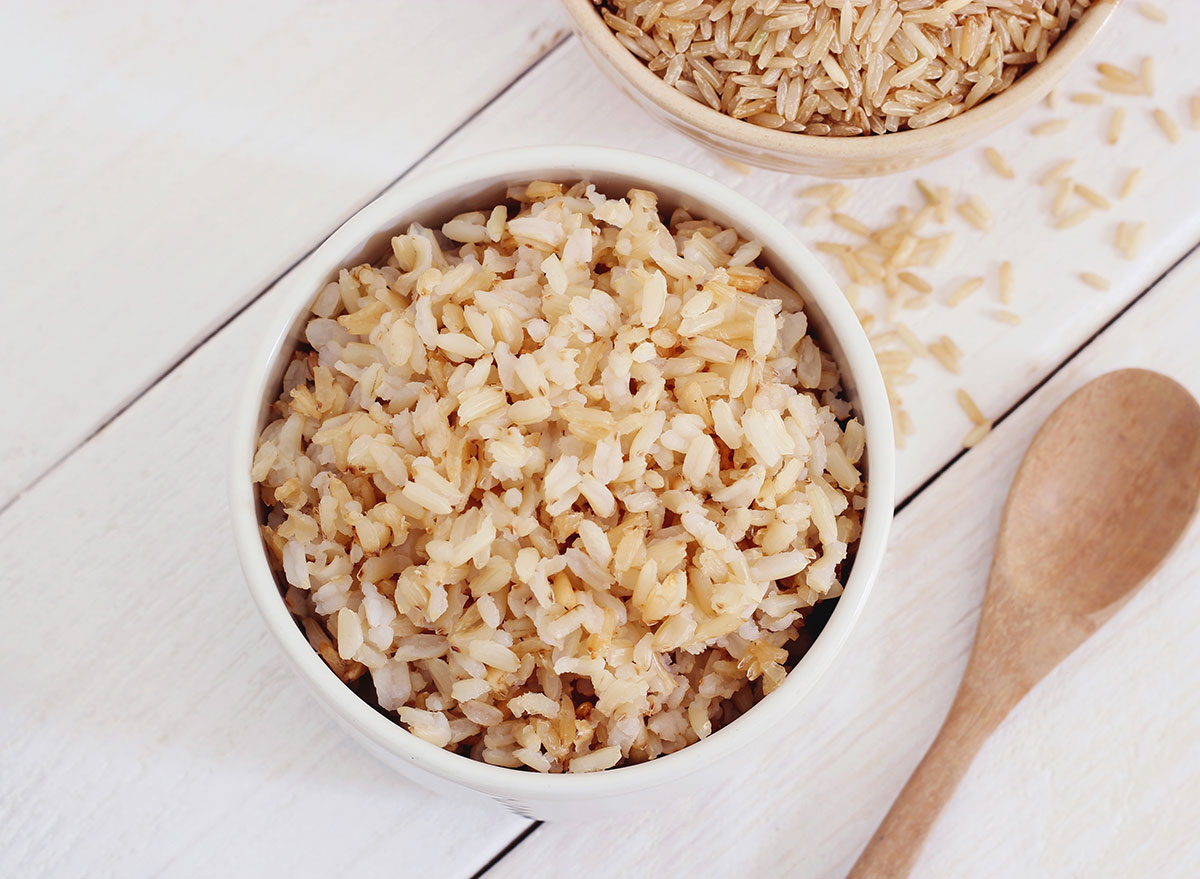
Low-carb diets may be having a moment, but if you want to slash your cardiovascular disease risk, you may want to keep some whole grains on your menu.
“Consuming more whole grains can help improve heart health, thanks to their fiber content, which can help reduce cholesterol and improve heart health,” says Schlichter.
“A 2016 analysis of 45 studies published in the British Medical Journal found that the consumption of whole grains was associated with a reduced risk of coronary heart disease, cardiovascular disease and total cancer,” she adds.
Load up on omega-3 fatty acids.

There’s nothing fishy about the cardioprotective effects of your favorite omega-3-rich foods.
“One of the all-time best foods for heart health is fatty cold-water fish because they are packed with omega-3 fatty acids. It is essential that you get omega-3s from the diet since your body cannot make this type of fat on its own,” says Katherine Basbaum, RD, a registered dietitian with UVA Health’s Heart and Vascular Center.
Basbaum notes that tuna, salmon, trout, mackerel, and sardines are all particularly good choices. “They help reduce inflammation in the arteries, can help with blood pressure control and lower triglycerides, one of the fats similar to cholesterol that, at high levels, is considered a marker for heart disease,” Basbaum explains.
If you’re looking for some more ways to add omega-3s to your meal plan, check out the 26 Best Omega-3 Foods to Fight Inflammation and Support Heart Health.
Eat your veggies.

Your parents weren’t kidding when they said that eating your veggies would keep you healthy—and one particular type may have an especially profound effect on your heart health.
Cruciferous vegetables, including broccoli, broccoli sprouts, Brussels sprouts, kale, and cauliflower, are a great addition to any heart healthy diet, according to Abby Vichill, MS, RDN, LD, a registered dietitian at FWDfuel Sports Nutrition.
“These foods contain antioxidants that work to lower inflammation that precipitate the onset of heart disease. One of the ways broccoli and other crucifers reduce risk of heart disease is by reducing the build of calcium deposits,” explains Vichill.
Add some almonds to your meal plan.

You don’t have to cut high-fat foods from your diet to keep your heart healthy. Case in point: adding almonds to your meal plan may actually have a cardioprotective effect.
“A heart-healthy snack that I love to crunch on are almonds,” says Toby Smithson, MS, RDN, CDCES, author of Diabetes Meal Planning and Nutrition for Dummies. “A recent study shows that ‘the simple dietary strategy of swapping almonds for typical snacks may bolster resilience to the adverse cardiovascular effects of mental stress by improving regulation of heart rate.’”
For more incentive to add some nuts to your menu, discover What Happens to Your Body When You Eat Nuts, Says Expert.
